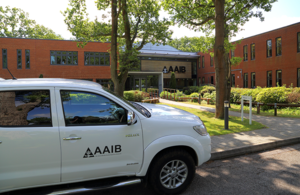UK-South Africa Tech Hub’s Launch League
Overview
Challenge
Entrepreneur Support Organisations (ESOs) lack the necessary tools, structures, connections and training to best deliver their services
Solution
-
Development of standardised content, toolkits, resources for ESOs
-
Coaching for facilitators to deliver programmes
-
Hosting ESOs meetups with expert speakers on key topics
-
Platforming the needs and challenges of ESOs to the wider ecosystem
-
Funding ESOs’ delivery of the Launch League Bootcamp
Impact
-
Online, open-license content, toolkits and templates readily available to ESOs
-
39 trainers from 9 organisations across 6 provinces received training
-
59 entrepreneurs completed the Launch League Bootcamp
Background
South Africa’s Department of Small Business Development, following President Ramaphosa’s commitment to grow the tech and small business sector, has set a target of establishing 100 incubation hubs across the country by 2024. The Department considers these centres a vehicle for promoting economic development and innovation, by stimulating the emergence of tech-based companies.
Contributing towards this goal, the UK-South Africa Tech Hub partnered with Viridian – a dynamic team that designs and delivers early-stage entrepreneur and investor programmes, research and strategy – to facilitate the growth of South Africa’s digital economy by providing targeted support for ESOs (Entrepreneur Support Organisations).
Programme
Launch League was created to develop open licence content for facilitators in ESOs. Three ESOs were then given funding to deliver bootcamps to idea-stage entrepreneurs, drawing on these training materials, with Viridian providing support and guidance during implementation. ESOs were recruited from across South Africa, outside of Cape Town and Johannesburg. Assessment criteria included having a tech focus, availability of physical space and capacity for training.
Two courses were created and continue to be readily available to ESOs: one focusing on programme management and the other on Launch League bootcamp facilitation. Facilitators can also access playbooks (designed as practical learning resources) and a library of free templates to support in the planning and implementation of programmes in their hubs.
During programme delivery, further need was identified to train facilitators in programme management and delivery of course content. Many ESO’s also expressed challenges with operating in isolation and wanted to be more connected to other organisations in the ecosystem.
In response, a second phase was launched – focusing on capacitating facilitators, better understanding the ESO landscape in South Africa, networking hub facilitators, and financially supporting ESOs to deliver Launch League bootcamps. The impact of Covid19 became apparent during this second phase, resulting in a pivot to virtual delivery which enabled a wider network of ESOs to be included.
Survey results highlighted additional needs and challenges faced by the ESOs. In response to both these results and the success of early output indicators, the UK-South Africa Tech Hub extended the project to include virtual meetups for ESOs to pose their questions to expert speakers on topics including investment readiness, communicating impact, and learning from international entrepreneurship hubs.
Tech Hub leadership
The Launch League forms part of the UK-South Africa Tech Hub’s portfolio of projects aiming to support, connect, grow and mature the South African digitaleconomy. The aim of the project is to build the capacity of South African ESOs, thereby contributing to greater digital inclusion and development, supporting business growth, employability for youth and women, and positive social impact.
Looking to the future
The UK-South Africa Tech Hub will continue to grow the Launch League programme, with future iterations focusing on:
-
Expanding the current training offering to more facilitators
-
Providing new training offerings on mentorship and funding
-
Continuing to develop networks in the ecosystem and between the ESO’s
-
Funding more ESO’s to run the Launch League boot camps for idea-stage entrepreneurs in their hubs
In order to create sustainability for the programme, this ‘train the trainer’ project focuses on capacitating multiple facilitators in each ESO to embed resource resilience on the content and programme delivery. The tools, templates, resources and boot camp training material is online, open-licensed and freely available to ESO’s to use and share in the ecosystem.
For more information
Read local media coverage of the partnership:
Bizcommunity: The biggest challenges facing South African tech hubs
Channel Africa [radio programme]: UK-South Africa Tech Hub has conducted research into the challenges and needs of tech-focused ESOs across South Africa
More about Launch League and the UK-South Africa Tech Hub
To learn more about Launch League and the UK-South Africa Tech Hub please contact: uksatechhub@fcdo.gov.uk.
The UK government’s Department for Digital, Culture, Media & Sport (DCMS) is building a global network of Tech Hubs. The International Tech Hub Network aims to forge innovation partnerships between the UK and international tech sectors, stimulate local digital economies; and build high-end digital skills to drive sustainable jobs and growth.
Contact the network at: international-tech-hub-network@dcms.gov.uk
